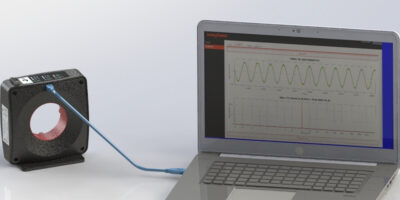Residual current monitor operates via USB connection
Residual currents can be analysed in detail using a PC using Windows software via the USB connection on the SRCMH070IB+ monitor. The Danisense residual current monitor has an oscilloscope function and can also perform FFT (fast Fourier transfer) analysis.
It can also monitor TRMS (true root mean square) in frequency ranges. The rated capacity limit, frequency range and integration time can be set remotely.
The SRCMH070IB+ monitor is suitable for monitoring the residual currents in production machinery or data centres without the need for fast system shutdown. It can measure DC and AC residual currents up to 2A rms at frequencies of up to 100kHz, making it suitable for a range of industrial applications, non-linear loads and generation sources, like renewable energies.
The monitor complies with the updated IEC62020-1, and is therefore suitable for remote monitoring without the need to perform periodic onsite checks of the insulation resistance.
It is equipped with a 70mm primary cable / busbar aperture and user-selectable settings for frequency range, integration time and rated residual operating current. In addition, it has an analogue output of 4.0 to 20mA, representing the real time TRMS value of the measured residual current for interfacing to, for example, a PLC (programmable logic controller).
Roland Buerger, a business development engineer at Danisense commented: “We can currently see that residual current monitors are no longer just coupled to the conventional energy measuring devices. In the future, the monitoring will be taken over by the PLC. The system-related leakage currents can thus be linked to the respective status of the plant. In this way, real fault currents can be detected much more accurately and reliably.”
Danisense combines complex magnetic performance with advanced electronics to offer precision current transducers to customers in demanding industries worldwide. The company was founded in 2012 and today is based in Denmark and Japan.
Danisense says it can create solutions that enable its customers to quickly and easy measure AC and DC currents with accuracies down to 1ppm.




